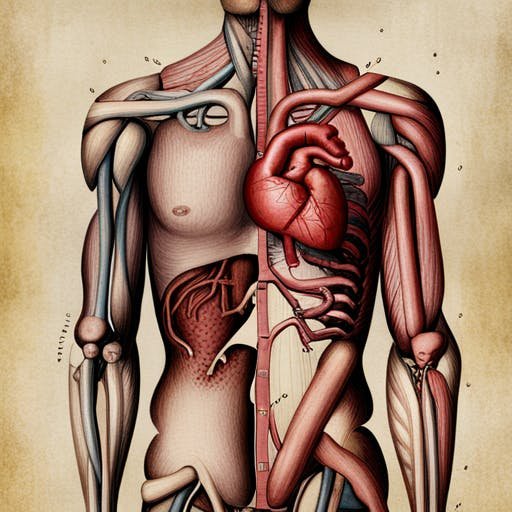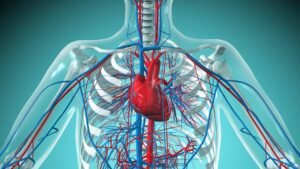Human Body Systems and Organs: A Marvellous Symphony
The human body is an intricate marvel, consisting of various systems and organs that work in harmony to maintain life. Understanding these systems is crucial for appreciating the complexity and interconnectedness that keep us alive and thriving.

Introduction
The human body is a masterpiece of nature, composed of several intricate systems and organs. This article aims to unravel the complexity of these systems, providing insights into their functions and interdependence. Let’s embark on a journey through the fascinating world of the human body.
Skeletal System: The Framework
The skeletal system serves as the body’s framework, providing structure and support. Comprising bones, joints, and cartilage, it plays a pivotal role in enabling movement and protecting vital organs. Key bones such as the femur, skull, and ribs each contribute uniquely to the body’s form and function.
Muscular System: Power in Motion
Our ability to move and carry out daily activities stems from the muscular system. With three types of muscles—skeletal, smooth, and cardiac—this system is responsible for both voluntary and involuntary movements. Understanding the significance of muscle health is vital for maintaining overall wellbeing.
Cardiovascular System: The Heart of the Matter
At the core of bodily functions lies the cardiovascular system, comprising the heart, blood vessels, and blood. This intricate network ensures the transportation of nutrients, oxygen, and waste products throughout the body. Appreciating the importance of a healthy heart is key to promoting longevity.
Respiratory System: Breathing Life In
The respiratory system facilitates the exchange of oxygen and carbon dioxide, vital for cellular respiration. The lungs and airways play a crucial role in this process, highlighting the significance of maintaining respiratory health for overall wellbeing.
Digestive System: Fuelling the Body
Fueling the body is the responsibility of the digestive system, a complex network of organs working in tandem. From the mouth to the intestines, each organ contributes to the breakdown and absorption of nutrients, ensuring the body receives the energy it needs.
Nervous System: Mastering Communication
The nervous system acts as the body’s communication network, transmitting signals between different parts. Divided into the central and peripheral nervous systems, it plays a crucial role in sensory perception, motor function, and overall coordination.
Endocrine System: Hormonal Harmony
Hormonal regulation is orchestrated by the endocrine system, consisting of glands that secrete hormones. These chemical messengers influence various bodily functions, from metabolism to growth and development.
Urinary System: Filtering and Eliminating
The urinary system, comprised of the kidneys and urinary tract, focuses on filtering blood, eliminating waste, and maintaining fluid balance. Appreciating the role of this system is essential for understanding the body’s detoxification process.
Reproductive System: The Cycle of Life
The reproductive system, unique to each gender, is responsible for the continuation of life. Understanding the functions of male and female reproductive organs sheds light on the marvel of human reproduction and the intricate hormonal processes involved.
Integumentary System: The Body’s Protective Shield
The integumentary system, encompassing the skin, hair, and nails, serves as the body’s protective shield. Beyond physical protection, it plays a role in temperature regulation and sensory perception.
Lymphatic System: Defence and Drainage
The lymphatic system is a key player in immune defense and fluid balance. Lymph nodes and vessels work together to combat infections and maintain the body’s equilibrium.
Immune System: Guardian Against Invaders
A formidable guardian, the immune system defends the body against pathogens. From white blood cells to specialized organs like the thymus, understanding the immune system’s intricacies is crucial for maintaining health and preventing illness.
Maintaining Homeostasis: The Body’s Balancing Act
Homeostasis is the body’s ability to maintain a stable internal environment. Understanding how different systems collaborate to achieve this balance showcases the remarkable adaptability and resilience of the human body.
Conclusion
In conclusion, the human body operates as a harmonious symphony of interconnected systems and organs. Each plays a unique role, contributing to the overall wellbeing of the individual. As we celebrate the intricacies of our biological existence, let’s marvel at the resilience and complexity of the human body.
FAQs
1. How can I maintain a healthy cardiovascular system?
Regular exercise, a balanced diet, and avoiding smoking contribute to cardiovascular health.
2. What role do hormones play in the endocrine system?
Hormones act as chemical messengers, regulating various bodily functions, including metabolism and growth.
3. Why is the immune system crucial for overall health?
The immune system defends against infections and diseases, promoting overall wellbeing.
4. How does the digestive system process food?
The digestive system breaks down food through mechanical and chemical processes, extracting nutrients for the body’s use.
5. What is the significance of homeostasis in the body?
Homeostasis ensures a stable internal environment, allowing the body to function optimally.


